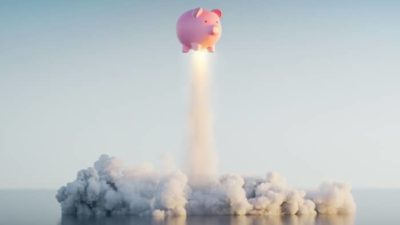This article was originally published on Fool.com. All figures quoted in US dollars unless otherwise stated.
This article was originally published on Fool.com. All figures quoted in US dollars unless otherwise stated.
Nvidia (NASDAQ: NVDA) CEO and founder Jensen Huang has been consistently selling some of his shares for months now. Even though Nvidia achieved several highs in the past few months, he kept selling, which may lead some people to believe that because Nvidia's insiders are selling, they know the business is at the top.
So, with the head man dumping stock, should you follow suit? Or is there something else going on here?
Just because a CEO is selling a stock doesn't mean the company is doomed
First, let's remember a fact: These CEOs are human. They're not robots, so they have needs and wants as well. What are some reasons you may sell stock? You may want to buy a car, invest in something else, purchase a house, or pay for a kid's college tuition. Or, maybe you're nearing retirement and want to have a larger cash balance to be more conservative. Whatever the reason may be, there are plenty of reasons to sell a stock.
Another reason to sell could be underlying issues that only the CEO knows about. This would also be a warning flag, but it would likely be accompanied by other insiders selling as well.
When an insider starts selling, it can be seen more as noise rather than a signal because we don't know why Huang is selling. But because Huang sold 120,000 shares every trading day since June 13 through at least mid-September, it's fairly obvious these are all planned sales and an effort to not overload his personal finances with Nvidia's stock performance. Across the selling period, Huang sold nearly 6 million shares of Nvidia stock, which is valued at around $700 million at today's prices.
That's a lot of shares, but it's only a fraction of what Jensen Huang actually owns.
As of March 25, 2024, Huang owned around 93.5 million shares of Nvidia. Although that's an outdated figure because part of his salary is stock options, it clues investors in that Huang isn't greatly concerned about Nvidia's future; otherwise, he'd be selling a lot more stock.
But should investors learn some lessons here?
Individual investors have reasons to sell, too
Nvidia's stock has been on a monster run for nearly two years. As a result, it may be a large chunk of your portfolio. So, the question arises: When is it time to take gains?
If you find yourself losing sleep, being in a bad mood on down market days, or obsessing over Nvidia's stock price every morning when the market opens, it may be wise to sell some shares to reduce your concentration.
Additionally, Nvidia is known to be cyclical. It has gone through boom and bust cycles before, although it has never experienced as much of a boom as its current state. While there seems to be no sign of Nvidia slowing down, demand will eventually subside, which could lead to a price drop.
NVDA Revenue (TTM) data by YCharts
Lastly, the numbers on your brokerage account don't mean anything until you sell. So, until you lock in some gains, all of the profits you think you made are just on paper.
You are likely sitting on massive profits if you invested in Nvidia in 2023 or 2024. It's time to take inventory and maybe follow Huang's lead and sell a chunk of the position off to ensure you're not too leveraged to Nvidia.
Artificial intelligence investing is a massive field, and plenty of other great opportunities are available in the market right now.
This article was originally published on Fool.com. All figures quoted in US dollars unless otherwise stated.
This article was originally published on Fool.com. All figures quoted in US dollars unless otherwise stated.










